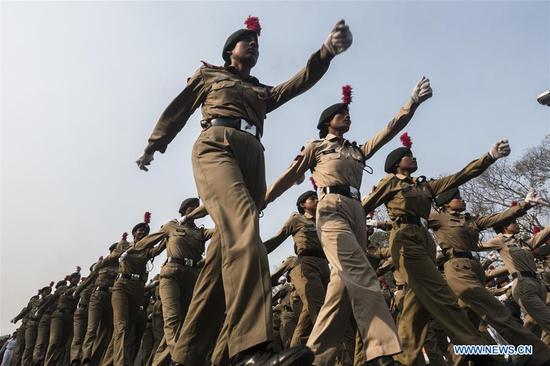With an increasing number of males seeking cosmetic surgery on their genitals, more efforts are needed to regulate the services to ensure safety, said the head of a special committee of the Chinese Medical Doctor Association.
Patients range from teenagers to seniors, but most of them are young, said Tian Long, director of the association's male reproductive organ plastic surgery and recovery committee and a doctor of andrology, or male medicine, at Beijing Chaoyang Hospital.
Some of them seek surgery because they feel there's a problem with their genitals, such as being too small or deformed, which causes psychological problems and makes them shy in social interactions, such as worrying about using public restrooms or not daring to seek a girlfriend, Tian said.
Some, though, have no abnormalities but have unrealistic expectations of size - either their own or their spouses', he said.
"These conditions can create heavy psychological pressure, and some people are even prone to violence," he said. "Some problems result in divorces."
Although cosmetic surgery on the male genitals has been performed in China for many years, techniques vary greatly between hospitals and regions, and there is a lack of unified standards, Tian said.
Promotional advertisements for surgeries that don't really work are rampant on the internet, he said.
"Such surgery, if improperly done, can result in serious negative impacts on patients, such as genital infection, pain and erection problems due to damage to blood vessels or nerves," he said.
"Such surgeries have been a major cause of medical disputes between hospitals and patients, especially for private hospitals that lack qualified talent."
To meet increasing demand and regulate the services, the male reproductive organ committee was set up in mid-December in Wuhan, Hubei province.
"By setting up the committee we hope diagnoses and surgeries can be regulated, standards can be established and promoted and technological breakthroughs can be made in such surgeries to improve their efficacy and safety," he said.
The committee comprises about 50 andrology experts from major hospitals in China, most of them from big hospitals in cities such as Beijing, Shanghai and Wuhan, he said.
"The number of surgeries conducted to extend or thicken the penis is estimated at more than 10,000 a year nationwide," he said. "More surgeries are conducted on patients with diseases in their reproductive system, such as infection caused by injuries, urinary tract diseases and cancer of the penis."
Demand for cosmetic surgery on male genitals has also been increasing in recent years, driven by higher sexual expectations for the patient or his partner and the pursuit of psychological comfort, he said.
In the andrology department of Beijing Chaoyang Hospital, doctors perform between 1,000 and 2,000 surgeries on penises every year, about half of them cosmetic surgeries, which is at least twice as much as 10 years ago, according to Tian.
"In recent years we have seen an increasing number of males coming for advise or treatment for their reproductive organs," he said. "Young men are having higher expectations of sex, and many of them want their penis to be bigger, or have a particular shape. Some also wish to make their penis look good, and ask for cosmetic surgery."
Zhang Zhichao, a professor at Peking University First Hospital's Andrology Department, said that while demand for genital surgery is high among males, irregularities in the industry such as misdiagnosis and treatment driven by profit are rampant due to lack of supervision.
"Cosmetic surgeries have been excessively and improperly conducted in many hospitals," he said. "In some cases patients who have sexual malfunctions and should have operations for treatment ended up receiving cosmetic surgery that will not help them improve their sexual ability."
In some cases patients' poor sexual performance is psychological rather than physiological, and they should not rely on surgery to improve their performance, he said.
More effective supervision from health authorities is needed to check such irregularities and protect the interests of patients, he said.


















































